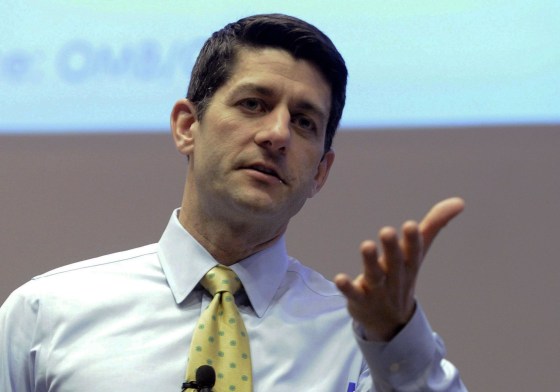Democrats have attacked the budget Republican Paul Ryan released Tuesday for trying to privatize and "voucherize" Medicare, the popular entitlement program for seniors.
Republicans have countered that the proposed changes instead amount to "premium support" and offer a choice to future seniors.
What are the changes that Rep. Ryan, R-Wis., has unveiled? Answer: Think of Obamacare, but with a public option attached.
The original 2011 version of the Ryan budget wanted to transform Medicare from a government-run program to one where future seniors (those under 55) receive a voucher or premium support to purchase health insurance from private insurers. The Congressional Budget Office said the plan would force most seniors to pay more for their health care than under the current Medicare system.
But the latest version -- as we've seen since 2011 -- gives future seniors the CHOICE of purchasing private insurance or through Medicare's traditional fee-for-service model.
That change, especially in an election year, makes it more difficult for Democrats to claim Republicans want to "end Medicare as we know it," since future seniors have the option of remaining in traditional Medicare.
From Ryan's blueprint:
The Medicare reform envisioned in this budget resolution begins with a commitment to keep the promises made to those who now are in or near retirement. Consequently, for those who enter the program before 2024, the Medicare program and its benefits will remain as they are, without change. For future retirees, the budget supports an approach known as ‘‘premium support.’’ Starting in 2024, seniors (those who first become eligible by turning 65 on or after January 1, 2024) would be given a choice of private plans competing alongside the traditional fee-for-service Medicare program on a newly created Medicare Exchange. Medicare would provide a premium-support payment either to pay for or offset the premium of the plan chosen by the senior, depending on the plan’s cost. For those who were 55 or older in 2013, they would remain in the traditional Medicare system. The Medicare recipient of the future would choose, from a list of guaranteed-coverage options, a health plan that best suits his or her needs. This is not a voucher program. A Medicare premium-support payment would be paid, by Medicare, directly to the plan or the fee-for-service program to subsidize its cost. The program would operate in a manner similar to that of the Medicare prescription-drug benefit. The Medicare premium-support payment would be adjusted so that the sick would receive higher payments if their conditions worsened; lower-income seniors would receive additional assistance to help cover out-of-pocket costs; and wealthier seniors would assume responsibility for a greater share of their premiums.
